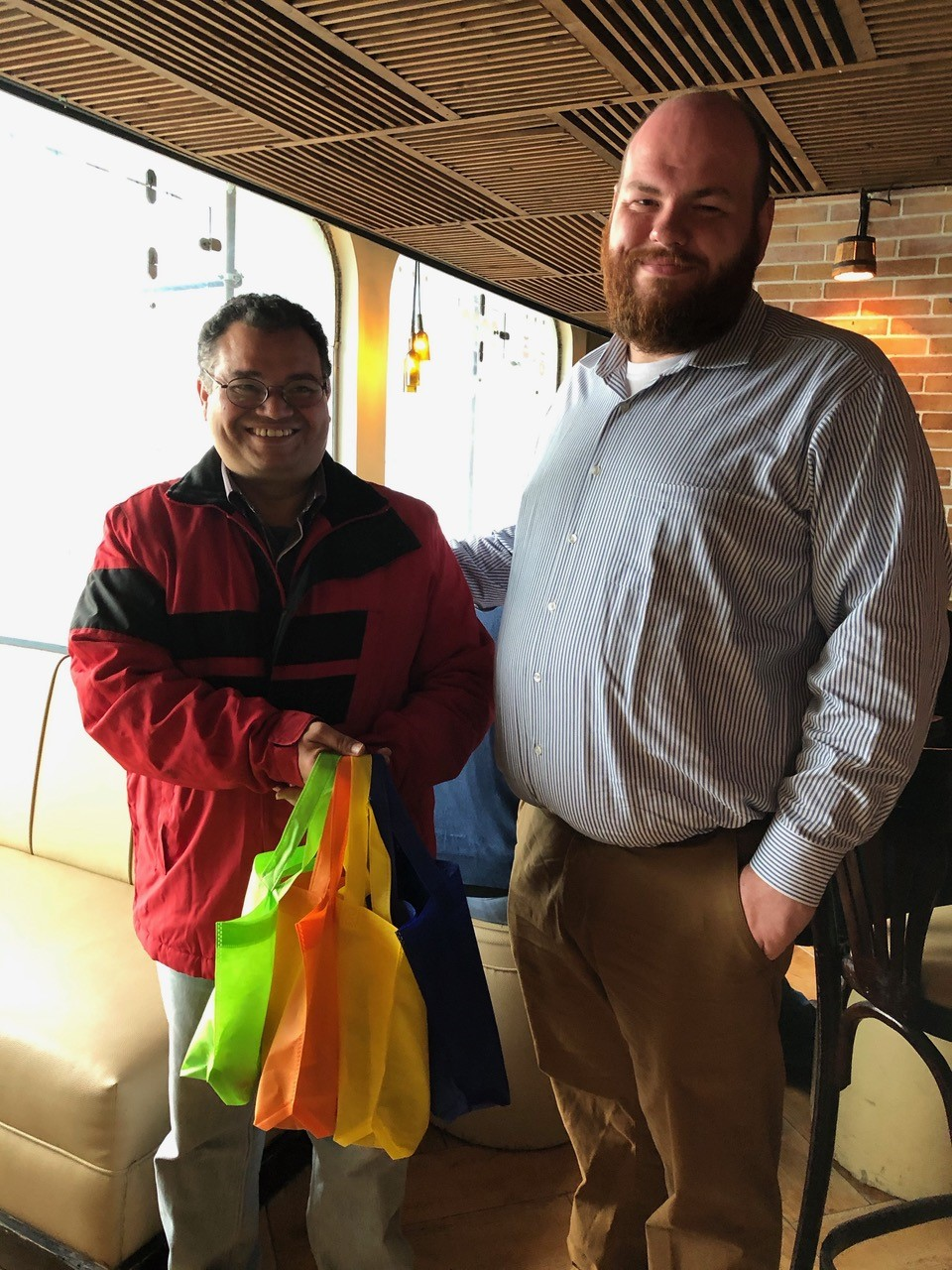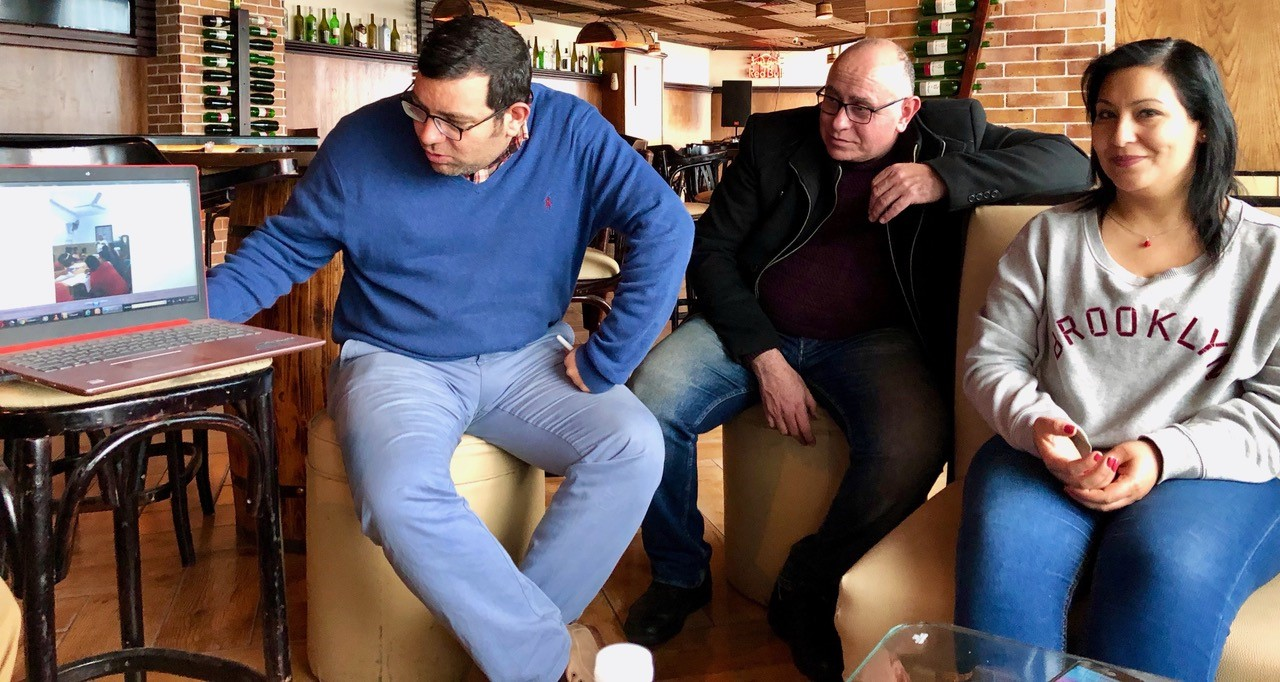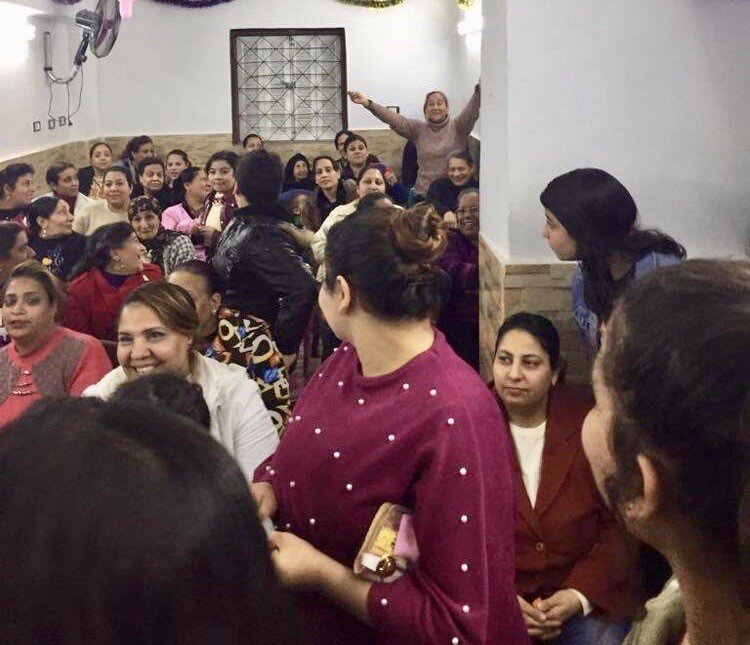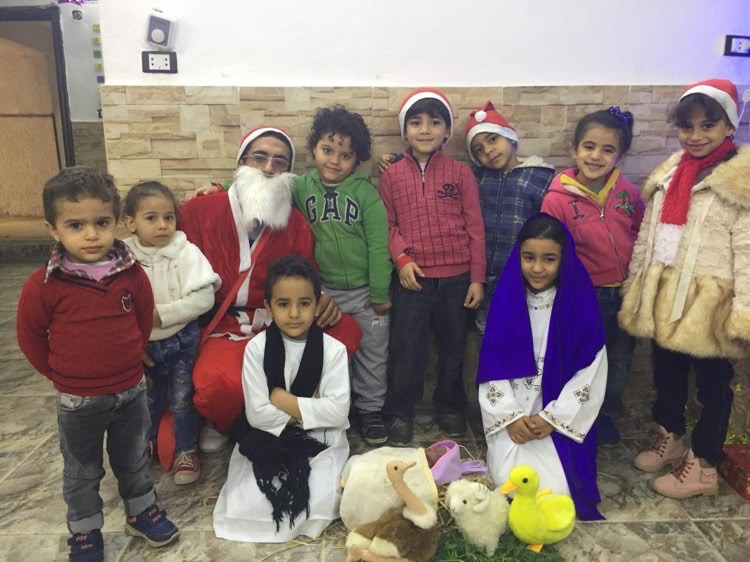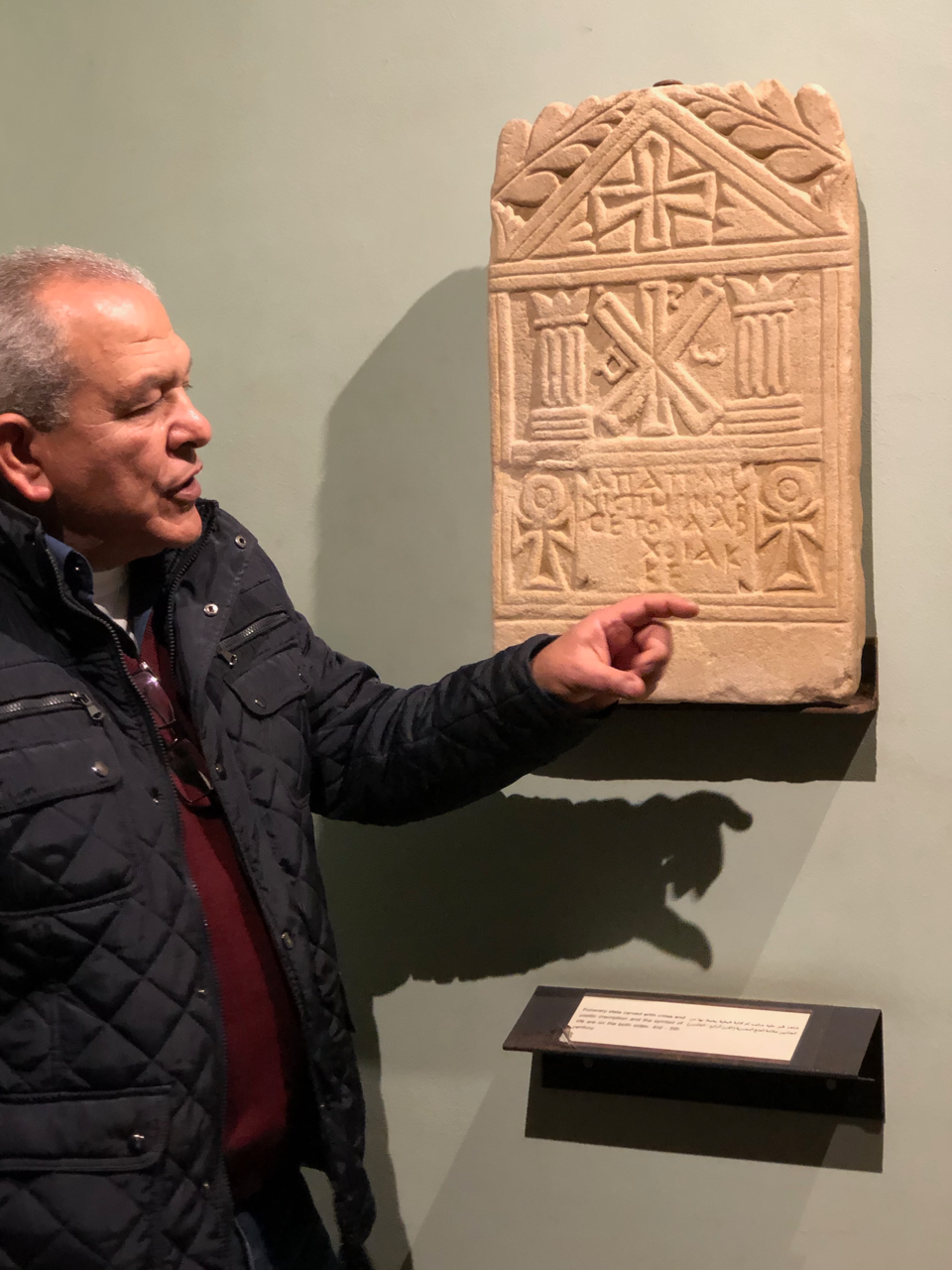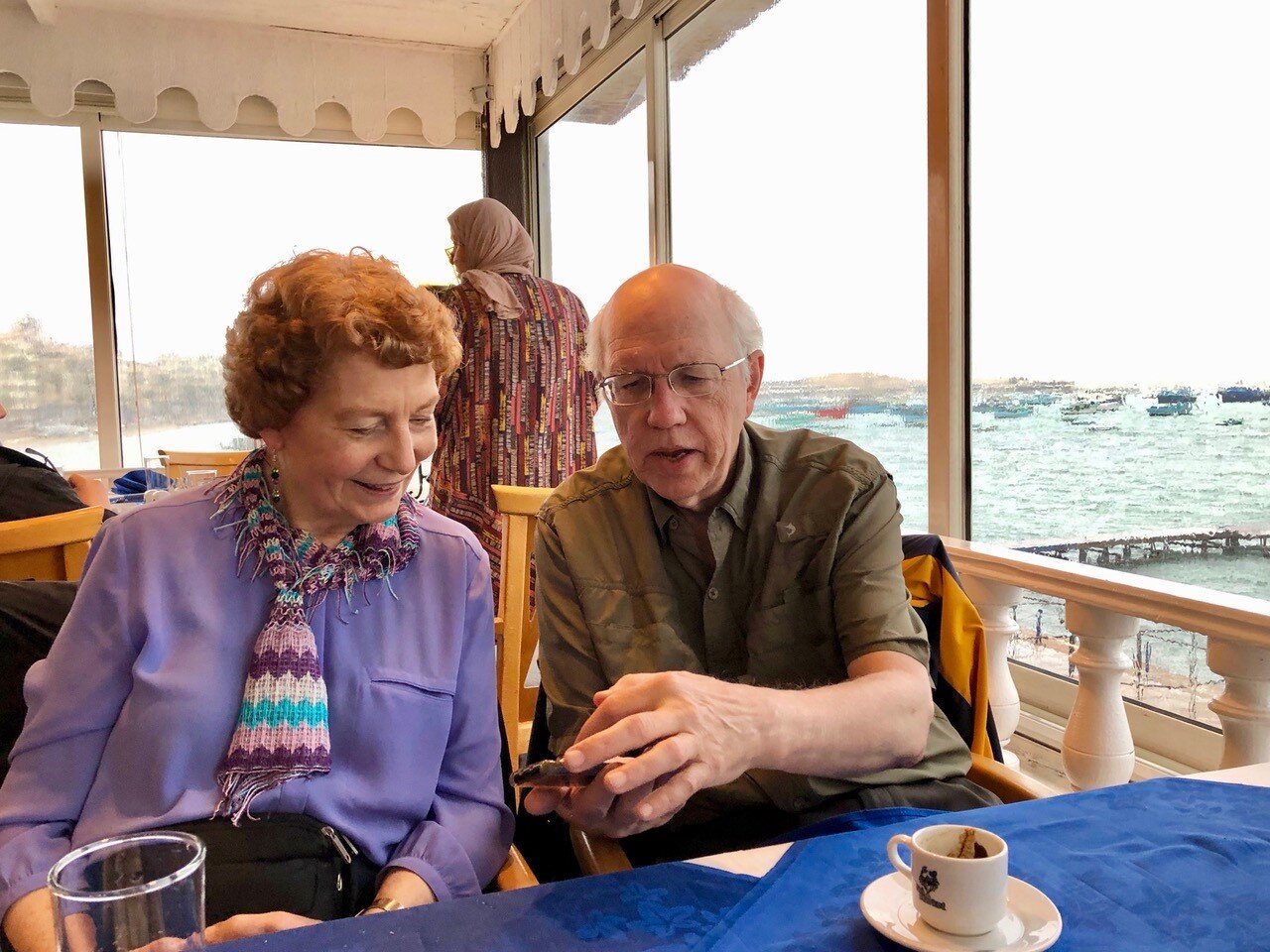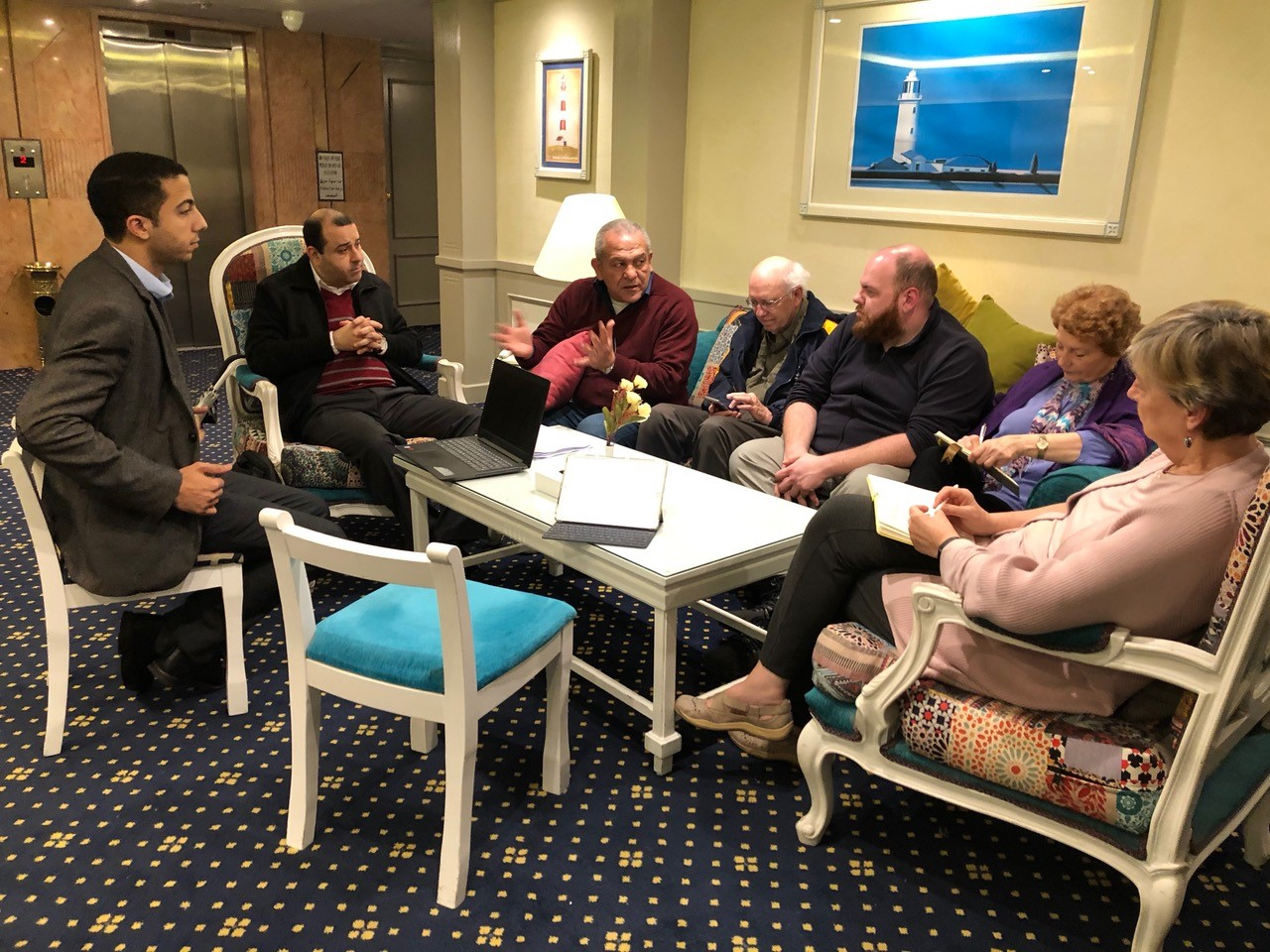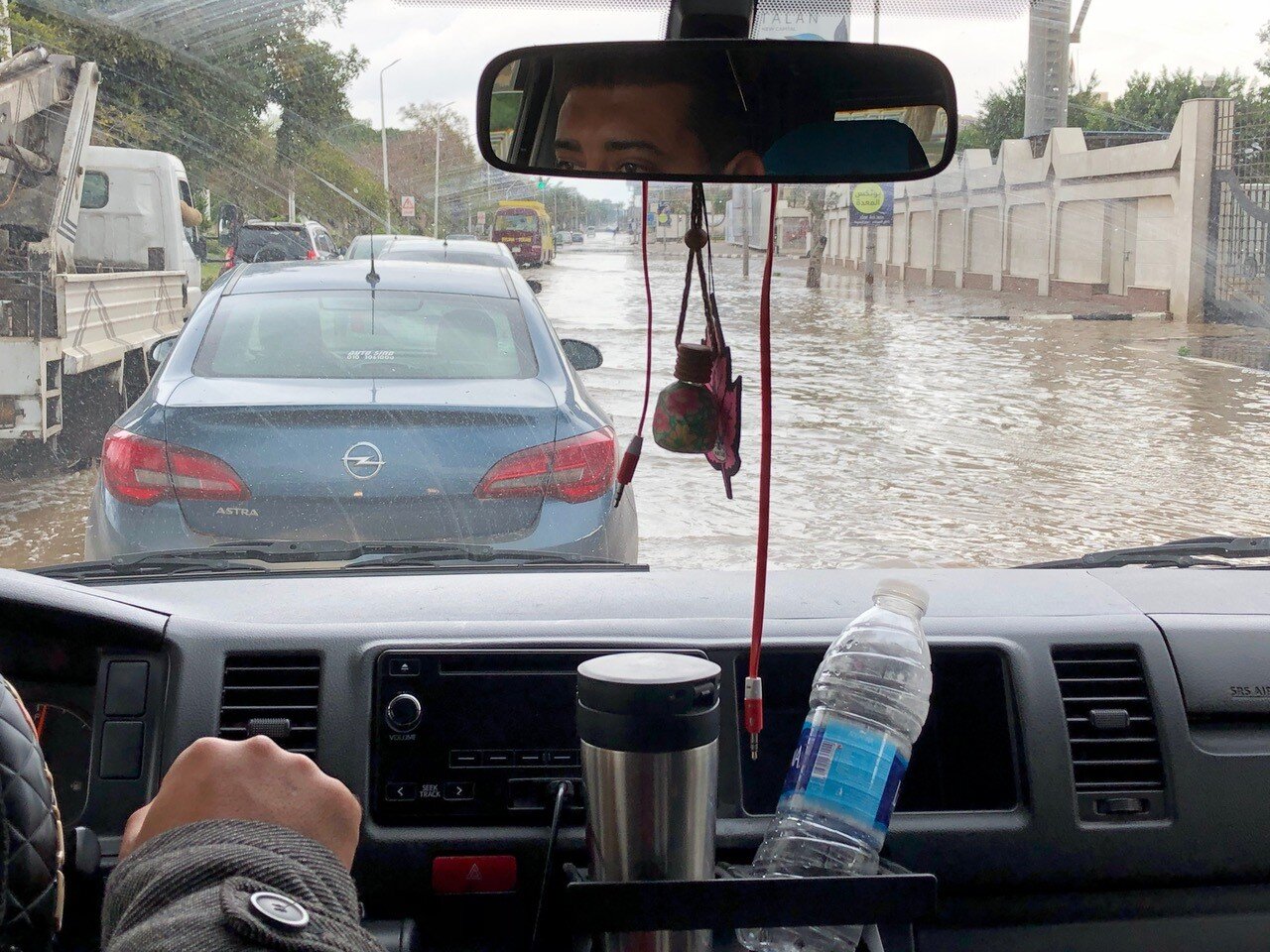Egypt #5: Vital Mission and Frustrated Plans
by Paul Arveson and Nancy Fox
As forecasts predicted, we awoke Thursday to a driving rainstorm in Alexandria that extended throughout Egypt. The President had proactively closed schools, government offices, banks, etc., for two days all over Egypt, which is not built for rain. Roads were washed out, ceilings and walls collapsed, water and electricity were knocked out. We were simply inconvenienced as our plans changed and instead of being able to visit and see the sites and meet some of the members, the pastors came to present to us at our hotel. Finding a private, quiet place to gather was not easy. Initially, they sent us to the bar, though that caused our Egyptian friends great discomfort.
We first met with Pastor Ibrahim Zakarya of Abou Soliman Fellowship (they do not have a building, so they cannot yet be called a church). He had started this fellowship with a small number of people about five years ago with home visits in five neighborhoods, going door to door to meet people. The children’s ministry started with 12 and is now up to 30 children. The fellowship provides social services, school supplies, and sports for outreach to the neighborhoods. This is a challenging community, with drug dealers, poverty, family stresses, and religious differences. Many people came here from southern Egypt hoping to find work. A problem Pastor Ibrahim deals with frequently is romantic relationships among young people that cross religious boundaries and cause conflict. It is dangerous for a Christian boy to marry a Muslim woman (or the other way around). Pastor Ibrahim is busy with pastoral care and teaching better relationship habits. The congregation is now more than 40 families, only 25 of whom were Evangelical (Presbyterian) background.
The congregation has no local place to meet and has to take bus trips of 90 minutes each way to worship or meet either at a Christian conference center or at their sponsoring church for worship on Mondays. Many more people, such as a woman in a wheelchair, would like to join, but are not able to spend three hours on a bus in order to worship on a workday. Pastor Ibrahim recently found a piece of land appropriate for a church building in the neighborhood, but the Synod has not had sufficient funds available to purchase it, and his own members are very poor. The process was very stressful and caused the gentle Pastor Ibrahim heartbreak when they lost the option on the land. Though he is young, this brought on a heart illness that required surgery.
Pastor Ibrahim has experienced much disappointment and stress as well as growth in this church; he loves them and is holding on to hope. He told God “I can do nothing”, but sensed the Lord answer, “Do what you can, and I will do what I will do.” We must keep them in our prayers.
The stories of the new fellowships share a number of common experiences and practices. New Hadara was also begun by a nearby historic (170 years old!) church, which sent a team of its members to do home visits, in order to get to know people and the needs of the community and to invite them to initial meetings. Pastor Michael Saad, an expert in addiction work and social services, was invited to build up the growing body and coordinate social, physical, and spiritual services of the new fellowship within the community. The community services of new churches vary widely, including such things as medical services, literacy classes, music lessons, preschool and Sunday school, parenting training, and sports opportunities for youth, depending on the needs and resources in each unique community. The growing fellowships serve their members and neighbors in holistic and completely inclusive ways, and for this, the communities come to appreciate and welcome the fledgling churches.
After these reports, we enjoyed a brief visit to the beautiful National Museum in Alexandria (where the collection ranged from ancient Egyptian to early Coptic Christian and medieval Islamic art and artifacts), a lovely seafood lunch on the Mediterranean, and some local rice pudding along the corniche.
In the evening, we welcomed more visitors to our hotel - two pastors of Ibrahemia Church. This is one of the larger churches in the Synod of the Nile, with about 500 members. The pastors are Michael Anwar and assistant Tharwat Musa. The church has many ministries, but they focused their report to us on the evangelistic work, especially in their own challenging area of Alexandria, sending a couple to work in a country outside of Egypt, and online.
Their community is facing multiple challenges due to its poverty and lack of moral guidance, including drug addiction, pornography, and religious extremists of the majority culture. Only a small minority of the population are Christian and most of these are Coptic Orthodox. The strategy has therefore been first of all to build trust, by providing many social services, vocational skill training (such as sewing classes), and sports activities. They serve the community through an NGO that provides medical care, mentoring of students, and counseling. They are multiplying the work in other neighborhoods, also, that are without Christian ministry, doing outreach ministry through disciple groups and street evangelism. Through their online ministry, conducted by young adults, they answer questions and take small steps to build trust with people but do not criticize the existing beliefs.
Our team was impressed with the ministries, though disappointed that we could not see them for ourselves. We especially enjoyed meeting the pastors and prayed for each ministry. The storm forced the cancellation of our visit to the historic Presbyterian school, hospital, and churches in Tanta in the Nile delta region. Instead, our attention was turning toward getting back to Cairo and changing our flights to get back to the US sooner because of the rapid spread of the new Coronavirus around the world. Our guide Mourad and our hosts (as well as the tourist police) protected and assisted us in every way.

